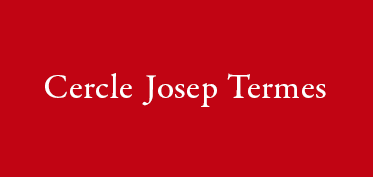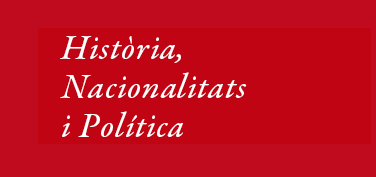Civil War and Corruption, 1936–1939
On June 19 and 20 of this year, the Tarot de Quinze Hall at the Faculty of Philosophy and Letters of the UAB hosted the International Colloquium “Corruption and War: An Inseparable Pair? Spain, 1936–1939,” organized by the Research Group on Political Studies, Identities, Institutions, and Corruption (GREPIIC). Professor David Martínez Fiol offers us a summary.
Specialists from various fields of historical research took part with the aim of opening up a rarely explored — or rather neglected — area of study and analysis: corruption. This is an even more barren field when examining the Revolution and Civil War across the Spanish context as a whole, and especially in the Catalan and Basque cases.
The conference began on the morning of Thursday, June 19, with two conceptual reflections on whether, during the Civil War, there were situations that could be identified as corrupt behavior. These presentations were given by Professor M. Gemma Rubí i Casals (UAB), director of GREPIIC and organizer of the colloquium, and Professor Emeritus Enric Ucelay-Da Cal (UPF).
Next, two highly controversial topics — both historiographically and politically — were tackled: one concerning the rumors surrounding the then-Prime Minister of the Generalitat, Josep Tarradellas i Joan, and his dubious capital movements (presented by journalist Joan Esculies of La Vanguardia); and the well-known issue of the “Moscow Gold,” discussed by Professor and director of the Department of Modern and Contemporary History, Josep Puigsech.
The morning session concluded with contributions by researcher Josep Antoni del Pozo and Professor Michael Seidman (University of North Carolina), who examined the contradictions and ideological and moral limitations of Catalan anarcho-syndicalism when faced with revolutionary events, as well as the economic exploitation derived from forced labor in the rearguards of both sides.
That afternoon, Professors Pierre Salmon (Maître de conférences in Contemporary History at the École Normale Supérieure, Paris) and Miguel Íñiguez Campos (Universidad Rey Juan Carlos I) discussed arms purchases and trafficking carried out by both the “Republicans” and the “Nationalists” during the Civil War. The session was closed by David Martínez Fiol (lecturer at UAB and GREPIIC member), who examined questions of morality and immorality in the realm of public service within the Generalitat of Catalonia.
On the last day, Friday, July 20, proceedings began with a talk by Agustí Colomines i Companys — Member of the Catalan Parliament for Junts per Catalunya, professor at the University of Barcelona, and GREPIIC member — who spoke about the troubling coexistence between revolutionary justice that emerged in the summer of 1936 and the ordinary, professional judiciary. Supporting his intervention were Professors Arnau González i Vilalta (UAB and GREPIIC) and Jaume Claret Miranda (UOC and Regiocat), who discussed, respectively, the evacuation of conservative Catalan sectors and the corrupt practices of officials responsible for issuing exit visas; and the construction of the Francoist army through a network of favors and influence.
The session concluded with contributions by Neus Morán Gimeno (researcher at the Josep Termes Chair), José Manuel Azcona (Universidad Rey Juan Carlos I), and Julen Lezamiz (PhD in History from the UPV), who spoke on the confiscations of Republican and Basque Nationalist Party (PNV) property by Francoist authorities. Finally, Daniel Vallès and Elisabet Velo (both Professors of Law at UAB) tackled the controversial issue of the need to demand legal accountability from the officials and administrators of Franco’s regime.
The sessions ended with a call to organize a second colloquium driven by new research into the topic of corruption in the context of civil war.






